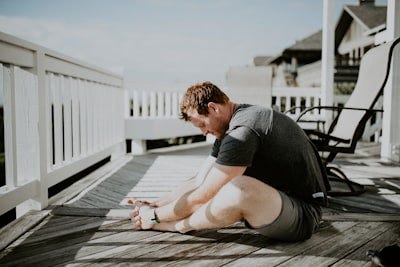The Rundown
Born This Way. If you have poor flexibility, blame your parents. A recent study published in Medicine & Science in Sports & Exercise used data from twin pairs performing 15 different fitness tests to find out the contributions of genes versus environment. The results, as Alex Hutchinson writes in his piece for Outside, revealed that flexibility is the one fitness area most determined by your genes.
Karri Silventoinen of the University of Helsinki led an international team of researchers who tested 198 pairs of twins (78 identical pairs) between the ages of 6 and 18. For the environmental factors, the study focused on unique ones (joining a sports team, experiencing an injury) rather than shared ones (neighborhood, socioeconomic status).
Overall, genetics played a large part in the results, with a low of 52% (standing long jump) to a high of 79% (sit-and-reach test). This range of heritability, the researchers say, is similar or slightly less than for height and childhood BMI and higher than the heritability of adult personality and other psychological traits.
There is some nuance to the nature versus nurture debate here. Hutchinson sums it up this way, “All these estimates of heritability reflect our starting points, but don’t tell us much about where, with sufficient hard work, we might end up.” He adds that trainability is also partly dictated by our genes, but mostly, “it’s dictated by different genes than your untrained performance level.”
Pleasure Principle. Can technology turn exercise pain into pleasure? Computer scientists at the University of Bath decided to find out by studying how sensor technology could be used to adapt the level of a workout focused video game or exergame, to match a user’s abilities and mood.
The goal was to help game designers develop more personalized exergames that adapt to a user’s struggles and ambitions. One way to do this is through sensors that read a person’s emotions and give them more ‘rewards’ when they are struggling and more obstacles when they are ready for a new challenge. But, discovering a trustworthy way to measure a user’s evolving emotional states has been difficult.
The Bath team made a breakthrough by using a specific range of sensors, which could be embedded in VR headsets and wearable devices like smartwatches, to track physical changes that a user experiences as they work out. Previous to this work, sensors had proven unreliable at measuring the emotional states of a person involved in a physical activity, making it challenging to recognize if a user was happy, stressed or bored.
For the study, 72 participants did a VR static bike race while the scientists used sensors to measure pupil size, facial expressions, heart rate, sweat levels, skin inflammation and electrodermal activity. The racers worked out with four distinct exergames at low, medium and high intensities, and each game was designed to induce a specific emotion.
For each workout, the researchers were able to match the difficulty level and the nature of the game with the physiological changes the user experienced, as measured by their sensors.
Drawing from this data, the team formulated eight guidelines for the creators of exergames that will help to enhance the engagement of users. Lead researcher Dr. Christof Lutteroth says, “In the long run, our objective is to make VR exercise emotionally intelligent.”
Smart Weights. If you’re looking to save space with a smart adjustable dumbbell, this Julu version lets you increase or decrease weight with the touch of a button.
When you press the LCD panel or tap on the app, pounds are added or removed automatically. A lock-in mechanism keeps the weight secure and the range is 6 lb (2.7 kg) to 36 lb (16.3 kg), making it useful for light, low-impact training.
The sensors also track reps and sets so you don’t have to manually input the data as you work out. As of September 21, the project was successfully funded on Kickstarter but you can still late pledge for available rewards.
Extra Point
Watch
Mr. McMahon. This six episode docuseries follows the rise and fall of Vince McMahon, who took WWE from a small, regional business to a global entertainment empire before sexual misconduct allegations led to his eventual resignation. Filmed over four years, the project evolved in unexpected ways for director Chris Smith who says the final product “is a revealing documentary that we believe offers a rich and nuanced portrait of the man and the complex legacy he left behind.” All episodes of Mr. McMahon are streaming now on Netflix.
Untold: Hope Solo vs. U.S. Soccer. Early in this episode of Untold, goalkeeper Hope Solo says she was “blackballed” from U.S. Soccer because she was “getting into the money.” Solo presents her case with some help from her childhood best friend and teammate, her college coaches and her lawyer. What is perhaps surprising, as one critic writes, “is how little contemporary evidence is present, with reporting and insight that would either support or disprove Solo’s statements ignored in equal measure.” Hope Solo vs. U.S. Soccer is streaming on Netflix.
Listen
Where Should We Begin? with Esther Perel. Listen in with psychotherapist Esther Perel, as real people searching for insight share the intimate details of their stories, from breakups to workplace conflicts to family fractures. A 2024 Webby Winner for health, wellness and lifestyle.
Read
How Hard Was Your Workout, Really? There’s a Number for That. In this piece for The New York Times (gift link), Talya Minsberg explains training load and how to interpret its data with a critical eye.



